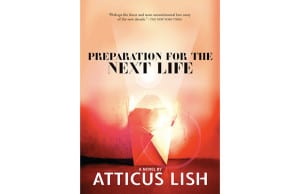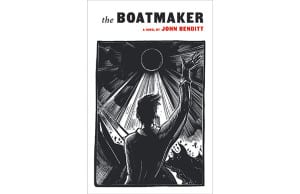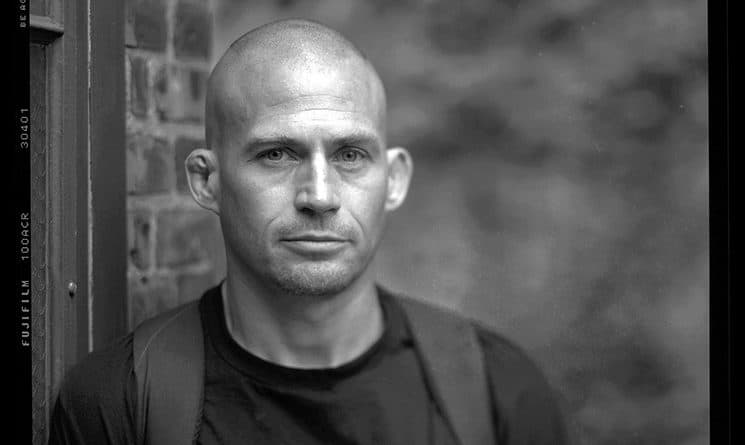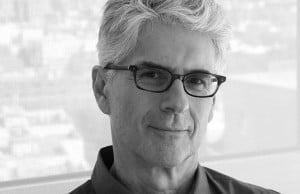Above, Atticus Lish
In their new novels, Atticus Lish and John Benditt explore odysseys
both internal and external
By Craig Robert Brown
In their latest novels, Atticus Lish and John Benditt pit their protagonists against seemingly insurmountable odds. With each beating — sometimes physical and often psychological — their characters take, they also discover hard truths and find solace in unlikely love.
In Lish’s latest, “Preparation for the Next Life,” he brings together the lives of Brad Skinner, a soldier who served in Iraq, and Zou Lei, a Muslim-Chinese immigrant. It’s a novel rich in detail that observes life in post-9/11 America from different, yet strikingly similar, viewpoints. In “The Boatmaker,” Benditt gives readers an over-the-shoulder view as a man leaves the comfort of his home on a small island for the temptations of the mainland. Both books are concerned with personal journeys, odysseys that find each protagonist in search of something, they hope, is better.
Benditt and Lish will read at RiverRun Bookstore in Portsmouth on Wednesday, March 18. The two took time out of their own travels to talk with The Sound by email about the journey and process of writing a novel.
Readers often see a reflection of themselves in a novel. Looking at your novels from a reader’s perspective, where do you see yourself reflected in the story?
JB: I think I am very concerned with growth, with expanding the self, with wholeness. I think we all have a drive toward wholeness. The boatmaker and I are very different. Our journeys are very different. But I think you can say that that preoccupation of mine, as John Benditt, can be found in the book.
AL: I actually don’t. I’m very clear that I’m not in the story because I went through a very conscious decision when I began writing to separate myself psychologically from my characters. They aren’t me. I’m just the director, they’re the actors. However, there’s a good bit of my wife Beth in Zou Lei.
Your protagonists are on a journey, physically and mentally, in the book. What was your own journey like to become a writer? What about the journey to write this book?
JB: I’ve been writing for many years, with a gradual movement from poetry to prose-poetry to fiction. It’s been a long, slow process of trying to get better, being willing to work for a long time, finish something, decide I can do better and set it aside in order to begin again — not nearly as dramatic as the boatmaker’s life.
AL: I’m still on a journey to become a writer, to really master the art of writing, by which I mean getting a handle on all aspects of the process — note-taking, researching, brainstorming, outlining, writing a draft, getting feedback, revising, polishing, copyediting. I’m just starting out. Every day is a learning day. Currently, jiujutsu helps me. I’m a body-learner. When my coach yells, it helps me. I take the voice home and yell at myself. To get anything done, you need structure, framework, discipline, pain, fear, deadlines! To me, sports are essential to writing. If I wasn’t doing sports, I’d go back to part-time work as a moving man, because you need social expectations, social contact, and physical effort to ground you.
In “The Boatmaker,” there is a sense of leaving your familiar life behind for something new, something different in the novel — becoming who you are meant to be. Did you have similar feelings in your own life? What was the inspiration for this novel? What island did you leave in search of something new?
JB: Yes, I do think a theme in this book is becoming who you are meant to be. And the fact that that process is likely to be filled with mistakes, including some very big ones! But my journey hasn’t been much like the boatmaker’s, because I had a sense for a long time of what I was meant to be: a writer. It just took me a long time to write something that was any good. Again: very slow learner.
Atticus, your novel focuses on a U.S. soldier and a Chinese immigrant. You write them as both feeling a sense of alienation in America. Is that your sense of America today, that even natives to this country, especially soldiers, feel like aliens here? What do you think makes them feel that way?
AL: Zou Lei and Skinner feel alienation for different reasons. They are on different sides of the War on Terror. He has served as a part of the Orwellian machine that has tried to devour her. This machine, represented for Zou Lei by the jailers in Bridgeport, the NYPD and Homeland Security, is her enemy. The only need she truly has is for Skinner’s love. She doesn’t need the friendship of ordinary people. I see her as a nomad, a frontierswoman; she is isolated by adversity, not alienated. Her isolation is a sign of her superiority in my mind. Skinner is alienated in the typical way that some combatants are after war. He bonded under fire with his wartime comrades. After returning to civilian life, he is deprived of that intense bond. He naturally feels he has little in common with his fellow citizens.
Does the journey give you purpose or direction in your writing and life?
AL: The journey up to this point has given me a bit of color that I can draw on. But my personal experience is still very limited. Perhaps this is the most valuable lesson I’ve learned: I don’t know squat. The interesting stories are out there somewhere past the horizon, and I need to find them. My direction is outward as a writer. The world is much more interesting than my kitchen. That much I’m sure of.
Atticus Lish and John Benditt will read on Wednesday, March 18 at 7 p.m. at RiverRun Bookstore, 142 Fleet St., Portsmouth.




